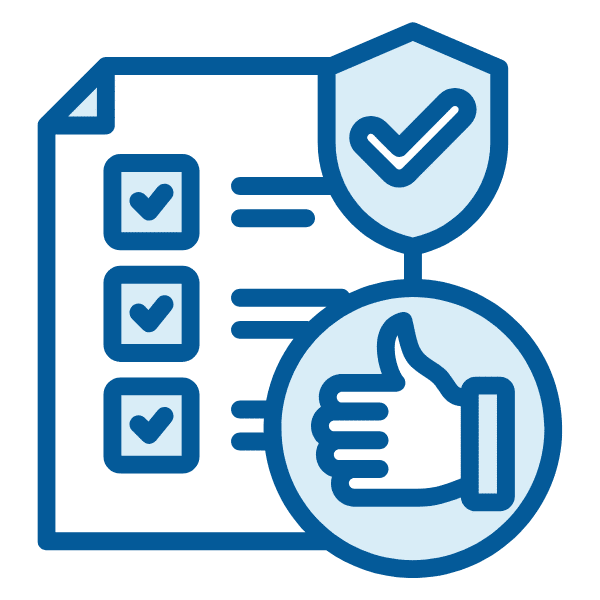MAS Trade Reporting Simplified
The Monetary Authority of Singapore
The Monetary Authority of Singapore (MAS) requires parties to a Specified Derivative Contract (SDC) to report to a licensed trade repository or licensed foreign trade repository under the Securities and Futures (Reporting of Derivatives Contracts) Regulations 2013.
Major rule changes were implemented on 21 October 2024. You may have noticed this being referred to as the ‘MAS Rewrite’ changes.
video
MAS Rewrite: Final Rules for OTC Derivatives
MAS have released their updated guidelines for regulatory reporting and outlined the final rules that came into effect on Monday, 21 October 2024 in line with ASIC Rewrite. This video outlines the final rules for OTC derivatives.
What is the reporting obligation?
MAS requires only certain over-the-counter (OTC) derivative contracts to be reported. Exchange-traded derivatives contracts including futures contracts and block futures contracts are not in the scope of the regime and therefore, they don’t need to be reported.
TRAction has summarised which OTC SDCs are to be included and excluded in your MAS trade reports in the table below:
| Reportable | Exclusions |
|---|---|
|
|
* All of the reportable SDCs are to be traded or booked in Singapore.
‘Traded in’ = If the derivative is executed by a trader who is employed as a Singapore Trader (or even if one of the traders involved is a Singapore Trader).
‘Booked in’ = if the derivative’s exposure is reflected on the balance sheet or profit and loss accounts of a person whose business is in Singapore.
Please refer to section 2 of the Regulations for detailed definitions of these five types of reportable derivatives.
Who is required to report?
The following entities are required to report subject to exemptions:
- any holder of a capital markets services licence (CMSL) subject to exemption;
- any Significant Derivatives Holder (SDH) as set out in section 6 of the Regulations (see below for more detail);
- any bank in Singapore licensed under the Banking Act (Chapter 19);
- any subsidiary of a bank incorporated in Singapore subject to exemption;
- any merchant bank approved as a financial institution under the Monetary Authority of Singapore Act;
- any finance company licensed under the Finance Companies Act; and
- any insurer licensed under the Insurance Act subject to exemption.
This is covered at Section 124 of the Act and Section 6 of the Regulations,
Who is not required to report?
The following are exempt from reporting under MAS Rewrite:
- an approved trustee (under s.289 of the Securities Futures Act 2001);
- a licensed trust company that entered into the relevant OTC as a trustee;
- the following, if they either have carried on its business or operations for less than 4 consecutive quarters; or if the conditions in regulation 10C(4) (for (i) and (ii) below) or regulation 10A(4) (for (iii) below) of the Regulations are met (i.e. refers to the bookings of trades with aggregate gross notional amounts being less than SGD 5 billion*):
(i) a subsidiary of a bank incorporated in Singapore,
(ii) a licensed insurer; and
(iii) a holder of a CMSL. - persons listed in the Fourth Schedule to the Regulations e.g. Singaporean Government central banks, multilateral development agencies and international organisations.
*The SGD 5 billion threshold refers to the aggregate gross notional amount of relevant derivatives contracts for past 4 calendar quarters not exceeding SGD 5 billion. The gross notional amount for each quarter is be assessed on the last day of that quarter.
Specifically in the case of a CMSL, the calculation of the aggregate gross notional amount:
- excludes derivatives contracts where a party to the contract is not an accredited investor or institutional investor; and
- includes both derivatives contracts to which the CMSL is a party and to which the CMSL has entered into on behalf of another person.
Other exclusions from reporting
Derivative contracts entered into between a CMSL and a person who is not an accredited investor or institutional investor are exempt from reporting. This effectively means derivative contracts between CMSLs and expert investors need to be reported.
[References:
- Regulations 10 and 10A of the SF(RDC)R
- Fourth Schedule to the SF(RDC)R)]
Stay in the know
Sign up to TRAction's newsletter
Who are Significant Derivatives Holders (SDH)?
An SDH is a person that:
- does not fall into any category above (see “Who is required to report?);
- is a resident in Singapore; and
- has an aggregate gross notional amount of SDCs which are traded in Singapore for the year greater than SGD 8 billion.
What to report and to whom?
Depending on the class of SDCs, the reporting details required are different. The following are the reporting information fields required for all classes of SDCs:
- contract information such as Unique Transaction Identifier (UTI);
- counterparty information such as Legal Entity Identifier (LEI);
- clearing information;
- contract confirmation details;
- trade execution;
- transactional data;
- valuation, collateral and margin;
- timestamp information; and
- event information e.g. action type and event type.
When is reporting required?
All MAS OTC derivative trades are to be reported to a designated TR regulated under MAS. As it stands, DTCC is the only regulated TR for Singapore MAS trade reporting. Reporting entities are required to report the trade information described below within two (2) business days (T+2).

Where can I find the MAS reporting rules?
The reporting obligations are set out in Securities and Futures Act (Chapter 289) (the Act), Securities and Futures Act (Chapter 289) and Securities and Futures (Reporting of Derivatives Contracts) Regulations 2013 (the Regulations) and you may also find the Frequently Asked Questions on the Regulations useful.
Video: improve your reporting
The 3 Most Common Errors in MAS
In this video, we’ve identified the 3 most common errors made in MAS OTC derivative trade reporting from our clients. Watch video to learn why these errors occur and how your firm can avoid them.
Pricing packages
How much does it cost?
We charge a combination of an account management fee and a cost per transaction/position. Contact us for a quote, or view our pricing page for more information.
MAS Reporting (Delegated)
-
$0 Initial set up cost
-
From $1.45 Open positions
-
Add-on Fees (optional)
Further information
With similar changes or ‘Rewrites’ of trade reporting regulations in other jurisdictions, MAS Rewrite aimed to align the Singapore OTC derivative reporting standards with the other major jurisdictions and to increase transparency. Continuing with global harmonisation, MAS decided to adopt the ISO 20022 XML message format, and has also followed in the footsteps of other jurisdictions by tackling this with a single-phase rollout. MAS updated guidelines for regulatory reporting and the final rules came into effect on 21 October 2024.
Yes. There were a number of changes to fields such as UTI, UPI, Collateral, FX Swap Link ID and Package Identifier, to name a few.
TRAction’s reporting services support clients reporting under the MAS regime with our end-to-end delegated reporting solution. Read more.
As the scope of MAS OTC Derivatives reporting increases, so too can the difficulty of keeping on top of your reporting obligations. We recommend you consider maximising the effectiveness of your team by using specialist regtech companies such as TRAction. Read more.
TRAction’s reporting services include data validation and data enrichment to identify and resolve errors as well as ensure the format meets requirements prior to Trade Repository (TR) submission.
We’ve identified the most common errors made in MAS OTC derivative trade reporting and provide steps on how to rectify each one. Read more.
Some firms may be unaware they are captured under the MAS trade reporting regime, which is why we’ve developed the MAS Assessment Tool. Read more.
ASIC Rewrite and MAS Rewrite both introduced a major structural change with the move from the CSV to XML file structure.
XML uses an embedded schema and validation system using XSD files. Essentially, when creating an XML file, it is checked against a set of formatting and data rules in the XSD file. If your XML file does not meet those rules, an error will appear.
See our detailed article for a list of the most common errors we see at TRAction in ASIC and MAS reporting and their causes:
There are certain fields within the reporting regimes of EMIR, MiFIR, SFTR, ASIC, MAS and Canada, which require populating with an LEI.
Check out our article, where we detail regimes and LEI fields for population and validation.
MAS Rewrite
Regulatory Resources
- GUIDELINES to the Securities and Futures (Reporting of Derivatives Contracts) Regulations 2013
- FAQs on the Securities and Futures (Reporting of Derivatives Contracts) Regulations 2013
- Securities and Futures (Reporting of Derivatives Contracts) Regulations 2013 (Commencing 21 October 2024)
- MAS Proposed Amendments to the Securities & Futures (Reporting of Derivatives Contracts) Regulations
- MAS FAQs on the Securities & Futures (Reporting of Derivatives Contracts) Regulations 2013
- Guidelines to the Securities and Futures Regulation 2013

Test Your Reportability
Determine what you are required to report under EMIR, MiFIR, and MAS regimes with our free Assessment Tools.
Simply answer a few questions about your business and our Reporting Assistant Reggy will calculate your reporting obligations.
Can't find the answers
you're looking for?
Get in touch with us for assistance.



